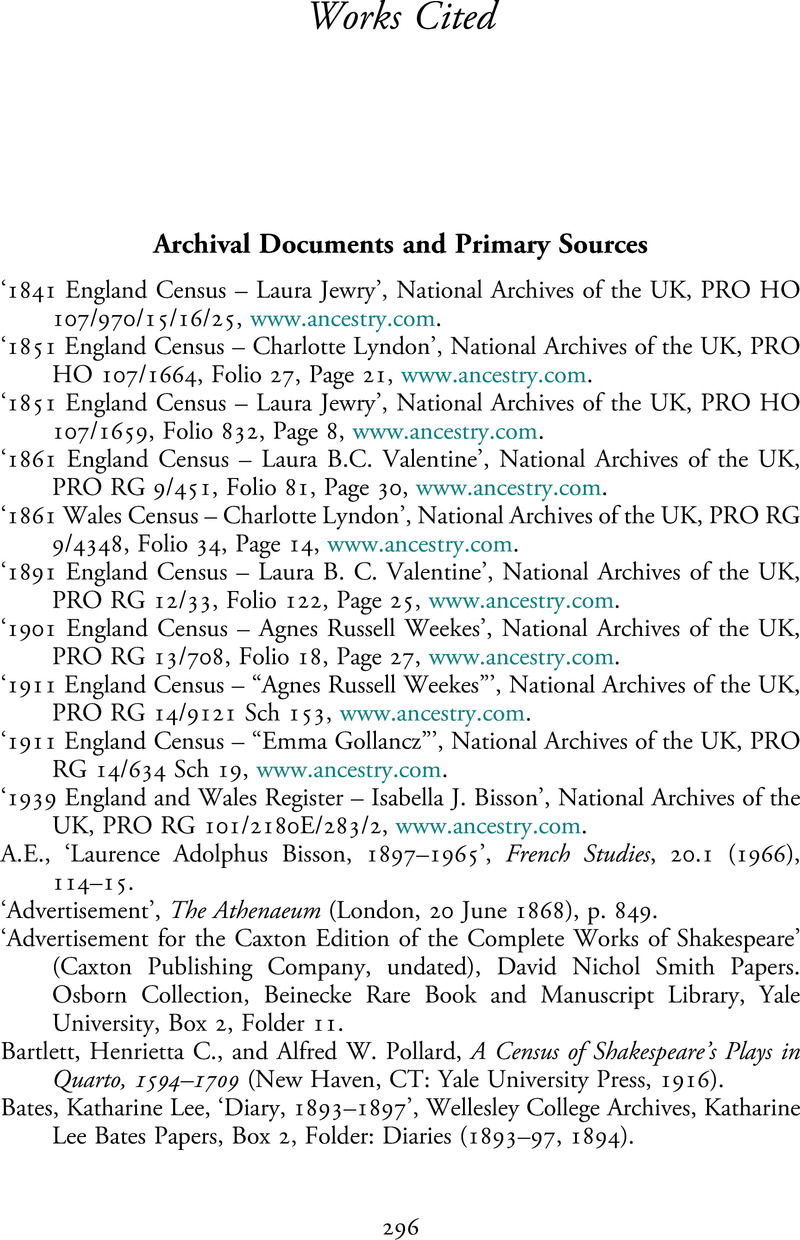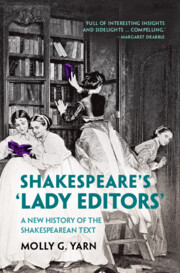Book contents
- Shakespeare’s ‘Lady Editors’
- Shakespeare’s ‘Lady Editors’
- Copyright page
- Dedication
- Epigraph
- Contents
- Figures
- Acknowledgements
- A Note on Citations
- Abbreviations
- Prologue
- Chapter 1 ‘We Have Lost Our Labour’
- Chapter 2 ‘It Is My Lady’s Hand’
- Sidenote
- Chapter 3 ‘Give Ear, Sir, to My Sister’
- Sidenote
- Chapter 4 ‘This Story the World May Read in Me’
- Chapter 5 ‘We Few, We Happy Few’
- Epilogue
- Appendices
- Works Cited
- Index
- References
- Shakespeare’s ‘Lady Editors’
- Shakespeare’s ‘Lady Editors’
- Copyright page
- Dedication
- Epigraph
- Contents
- Figures
- Acknowledgements
- A Note on Citations
- Abbreviations
- Prologue
- Chapter 1 ‘We Have Lost Our Labour’
- Chapter 2 ‘It Is My Lady’s Hand’
- Sidenote
- Chapter 3 ‘Give Ear, Sir, to My Sister’
- Sidenote
- Chapter 4 ‘This Story the World May Read in Me’
- Chapter 5 ‘We Few, We Happy Few’
- Epilogue
- Appendices
- Works Cited
- Index
- References
Summary

- Type
- Chapter
- Information
- Shakespeare's ‘Lady Editors'A New History of the Shakespearean Text, pp. 296 - 325Publisher: Cambridge University PressPrint publication year: 2021



